|
“How do we fix the dying church?” That's the phrase I have been hearing quiet a lot over the past two years. “Why are we not reaching millennials?" "How do we still care for our elderly?" "Can someone please get the coffee out of the sanctuary!" OK, that last one isn't really a question, but it's part of the overall theme. First of all, let me preface. I'm a minister. I have been the full-time, solo pastorate at a church. (It didn't end well.) My story is for another day. Needless to say, after my experience, other pastors came out of the woodwork to support me. Pastors who were hurt, damaged, destroyed by the church. There are more of us than anyone would like to admit. We are a growing number. Many of those blogs regarding what the church should do to remain viable were written by the damaged Christian congregant or minister. We are a wounded team of warriors who still love an institution that has betrayed us. Once again, another story for another day. To get to the point, I've been mulling over two questions: What is wrong with the church? and How do we fix it? The reason these are becoming real questions is simple: churches are dying. Sanctuaries that used to hold two-hundred people now hold 30-50 on a given Sunday. Doors are closing for good. Churches can no longer afford to hire their ministers. The warning bell began ringing in the early 90's. Back then, churches laughed off the statistics which were beginning to show a stagnancy in membership growth. Now we have reached full blown decline and everyone is thirsty for easy answers to the problem. (Hint: We have all scoured the well lit areas looking for the “lost coins” of the church. We can safely call the bright and easy to hunt areas 'searched'. Maybe it's time to start looking in the dark.) I am going to tell you, over the next few paragraphs, what the problem is, and how to fix it. Yes, it will be a real answer. Yes, it will be something every church could do. No, it will not be easy. I don't anticipate churches across the nation will be jumping on board with what I'm about to share. Many churches are still looking for the easy fix. There are many a congregation out there damaged. Before I really get into the overall problem, let me say something regarding damaged churches. There are times when a church faces serious, and detrimental conflict. Let's say a major church split in 1977 over evangelism that took the minister with it. That damage will replay itself in the church like a scratched record until it's fixed. So the same church will spend the next 40 years scapegoating ministers, loved or not so loved, who even breathe the word evangelism. They might not even know why they are doing it anymore. Until the church fixes the initial 'scratch', the church will keep skipping and breaking congregants/ministers. (I may or may not be using an actual church as an example.) There's the answer for broken churches. Find the initial break, and fix it. The answer for the collective church is different. The joke is, the church is always 20 years behind society. Clothes. Music. Social issues. If you want to test it, go to church this Sunday and pretend the year is 1994. Clothes: We were going through a stage in fashion where we were told it didn't matter what we looked like, as long as we were comfortable. Just wear a t-shirt and jeans. (Even if the t-shirt was made by Gap.) Music: Karaoke was at it's height. It was cool to go to the bar and sing the lyrics of a famous artist. All while the words flashed up on the screen for all to see. Social issues: Helping people was as easy as writing a check. In the 90's it was the beginning of supporting a cause, rather than helping our neighbor. Maybe the causes were noble, but at the cost of relationship. You should let that sit for a moment. I just described the modern American church. Now the follow-up question should be: Why are we 20 years behind culture? The answer has everything to do with our missionary style. I mentioned this before, but it needs repeating. When the culture is not our own, we are completely ready to dive deep into their world, in order to understand their context. Over seas, new church plants look WAY different in it's inception than American new church plants. The problem is, it shouldn't. The outcome, the final product, should look different. The process to get to the final product should look relatively similar. Instead, this is how the American Church has done church plants for the past 100 years: “Church A is really growing! Look at what they are doing. They have A B and C. Let's do that!” Instead of starting with the culture and building in, they start with themselves and built out. We are perpetually 20 years behind because only a minuscule part of the Christian population is bold enough to start with the culture. Then, their result is copied, instead of their process to get to the result. By the time their result is Xyroxed by every church looking for an easy answer, the result is now 20 years too late. The American Church (and I would love to hear the European view of all this) has been built on the foundation of isolation. I always get so frustrated when articles just highlight the problem and give no real solution. Here is a solution, a real solution. If you are a life-time Christian, who loves the church and how it's been done for generations, you are going to hate this solution. Yet, this solution will work. Ready, for this? Start building churches like the culture is not your own, because it's not. Instead of coming to a community with a factory built, ready-made church that worked in San Antonio twenty years ago, come with nothing. There is nothing you can bring to a community that isn't already there. God is everywhere! While we have been cloistered in the safety of our stained glass prison, God has been working in the world! It is not our job to take our images, our symbols and jam them down the community's throat. It's our job to help the community see the images they already have. God, without us, is working in this world! It is our job to highlight what already exists, not paint over it with the skeleton of 200 year old worship. Has anyone asked the community, “How do you want to worship God?” We have these bio-domes artificially surrounding our congregations, keeping our traditions and worship style intact. It's time to pop the bubbles, have a funeral for our old church, and see what God can do. Christians are built from the resurrection of Jesus Christ. We can survive death. We can rise from the ashes. We, necessarily must die first. Let go, and trust God is on the other side. Let go, and begin mission work like it's meant to be done, from the outside in. I know I'm ready. Who's with me? Seriously, who's with me? If you feel Christianity is where God is calling you, you feel isolated by the way church is done today, and you are in West Georgia, contact me! Let's start the research. Let's get this going! Email me. If you like what you are reading there are many ways to connect:
And as always, contributions are greatly appreciated. Acts 17:22-31 CEB Paul stood up in the middle of the council on Mars Hill and said, “People of Athens, I see that you are very religious in every way. As I was walking through town and carefully observing your objects of worship, I even found an altar with this inscription: ‘To an unknown God.’ What you worship as unknown, I now proclaim to you. God, who made the world and everything in it, is Lord of heaven and earth. He doesn’t live in temples made with human hands. Nor is God served by human hands, as though he needed something, since he is the one who gives life, breath, and everything else. From one person God created every human nation to live on the whole earth, having determined their appointed times and the boundaries of their lands. God made the nations so they would seek him, perhaps even reach out to him and find him. In fact, God isn’t far away from any of us. In God we live, move, and exist. As some of your own poets said, ‘We are his offspring.’ “Therefore, as God’s offspring, we have no need to imagine that the divine being is like a gold, silver, or stone image made by human skill and thought. God overlooks ignorance of these things in times past, but now directs everyone everywhere to change their hearts and lives. This is because God has set a day when he intends to judge the world justly by a man he has appointed. God has given proof of this to everyone by raising him from the dead.” I'm not going to pretend the internet is the bastion of sanity. We're a little off here, and if you are reading this, so are you. Some of us are here to waste time; get a laugh or two in. Some of us are here to learn; end a debate with a spouse or friend. Some are here to connect; find new people to converse with in this caucus race we call life. The rest of us, well we don't talk about that here, but they know who they are. No matter what the reason, it's necessary to be a little unhinged. Our shared insanity comes from the inexplicable truths of the internet. Somehow we all have our own limelight; our own space to shine. We can say anything. We can post almost as much. At the same time, no one seems to be looking. No seems to hear. Maybe we get the page views, but what does that mean? Yes, I'm going to explain how we are all a little 'mad'. More importantly, I am going to use the scripture above to prove it. But first, some more Alice: “Take some more tea," the March Hare said to Alice, very earnestly. "I've had nothing yet," Alice replied in an offended tone, "so I can't take more." "You mean you can't take less," said the Hatter: "it's very easy to take more than nothing." "Nobody asked your opinion," said Alice.” ― Lewis Carroll, Alice in Wonderland 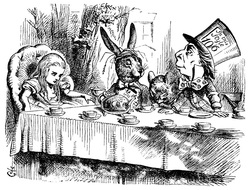 An important piece to the puzzle to remember is, no one is wrong here on the internet. If you admit to someone they made a mistake, the target, or purpose of the initial argument, magically changes. This happens in very much the same way the Hatter changed the focus with Alice at the tea party. Alice was trying to tell the March Hare she hadn't received any tea yet. The Hatter moves the target to suggest the real issue was about the grammar of 'more' verses 'less'. Alice, and ourselves could try to keep the focus on the initial target but, attempting to realign back becomes a fruitless endeavor. It's crazy to pretend the focus is really on the target. It's also crazy to try to hit the moving target people create in internet discussions.  Paul didn't chase the moving target, or point out the crazy nature of those silly people of Athens. Paul accepted the insanity in order to remove the target completely. I can't even imagine how ludicrous Paul probably thought it was seeing an alter to an 'Unknown God.' He was there to convince the people to accept Christianity into their pantheon. He was bringing something real, and the competition was, well, nothing. Literally, nothing. How was he going to deal with it? Paul deals with it by accepting their insanity and adding the truth to it. "Oh how pious you are," adding a modern flair to his words. "God's so much more than us, there's nothing we can get. I see what you did there, with that unknown God alter." <wink wink> Now, what if I were to tell you there is something you can know, and this knowledge takes the form of Jesus Christ." Simply put, this is how we have a civil discussion. Maybe Paul learned something from watching Stephen being stoned to death. (Remember he was there. Paul, or at the time Saul, had front row tickets.) Stephen demeaned the crowd. I'm not saying it would have completely altered the hearts and minds of the crowd, but I am saying Stephen watching his temper could have had the possibility of a different outcome. I am also suggesting Paul keeps moments, like the stoning of Stephen, in his heart when he needs to face a less than cordial audience. The point? Oh, the point! I suppose I should be making one of those. You are here, after all. Paul has two choices in Athens. He could have engaged in the maddening process of a pointless argument. (Many of us do that here. Sometimes winning an argument is still losing. Just saying.) Ultimately, he played into the madness by accepting it, and leading them to the ultimate truth. “Alice came to a fork in the road. 'Which road do I take?' she asked. 'Where do you want to go?' responded the Cheshire Cat. 'I don't know,' Alice answered. 'Then,' said the Cat, 'it doesn't matter.” ― Lewis Carroll, Alice in Wonderland If are hoping to engage with others on the internet in a sane way, then it really doesn't matter which direction you go. You won't get far. Remember? We are all mad here! My understanding is, you have two choices: Go left, and try to win the internet by attempting to show the masses how your opinion is the right one. To that I say you're crazy. You will end up more alone than when you started. Go right, and try to understand your virtual neighbor and learn from one another. You have to let go of a little bit of your sanity to do it. My suggestion? Take the right path, the one Paul took, and the one Jesus asks us to take. Good luck! If you find the Queen of Hearts out there somewhere, don't engage her in croquet. I heard she cheats. If you like what you are reading there are many ways to connect:
And as always, contributions are greatly appreciated. "Sticks and Stones may break my bones, but words will never hurt me." It's somewhat fortunate Fig Tree Christian is a digital audience. We all have thicker hides here. We necessarily have to. Anyone who doesn't just gets beaten down by callous and heartless words. It's culture. It's everywhere. Don't believe me? My son was playing Little Big Planet and someone had made a level called, Kill Justin Bieber. The whole point was to kill images of Justin Bieber in cruel and unusual ways. I made him stop the level. He asked me why. I said, "What if the game was, Kill Mommy? Would you still want to play it?" "No!," he quickly responded. "That's mean!" "Well," I explained, "Justin Bieber is a real person, with real feelings. Don't you think he would be upset by this?" "Justin Bieber is real?" The whole conversation crystallized how disconnected we really are. We can't see the humanity beyond the war cry. It's all fun and games, unless you are the person on the other side of the screen. If you want to know why I don't spend my time bashing Piper, Driscoll, Aronofsky, Beck, or whatever name is popular to smash right now, it's because the proverbial face approving of our desire to quell unpopular voices is not the righteous Paul, but the misguided Saul. Acts 7 shakes me to my core. It's the truth beyond the silver lining of call. It's not all sunshine and roses for God's shepherds. They are stoned, crucified, burned at the stake (adding Joan of Arc to the mix). Accepting a call has no real promise for a long and lasting life on earth. Following a call doesn't mean everyone is going to think you are the bell of the ball. While the internet isn't literally slinging stones, we are hitting people with words, and words can sometimes terribly hurt. I just want to leave you with a thought: What side are you on? And, what side our you taking? Maybe you are not the one writing and railing against someone, but are you supporting someone else who is? Does that make us any better? While you might be scoffing at my words, calling me foolish for comparing internet slander to actual stoning, keep this in mind: When Stephen first said his mind the crowd first turned to slander his speech. It was only after slander, the story really turned dark. Sometimes, if humanity has the right Saul nodding in approval, we are capable of much worse than being internet bullies. It all starts with slander. Which side are you on? Acts tells us which side God's on. The second we start throwing stones, proverbial or otherwise, whether they speak truth or otherwise, God is on the side of the person being stoned. We are a non-profit. Before we renew our non-profit status, board nominations are open. They will remain open until May 20th. More information under Upcoming Events, and in our subreddit.
If you like what you are reading there are many ways to connect: And as always, contributions are greatly appreciated. John 10:1-10 CEB I assure you that whoever doesn’t enter into the sheep pen through the gate but climbs over the wall is a thief and an outlaw. The one who enters through the gate is the shepherd of the sheep. The guard at the gate opens the gate for him, and the sheep listen to his voice. He calls his own sheep by name and leads them out. Whenever he has gathered all of his sheep, he goes before them and they follow him, because they know his voice. They won’t follow a stranger but will run away because they don’t know the stranger’s voice.” Those who heard Jesus use this analogy didn’t understand what he was saying So Jesus spoke again, “I assure you that I am the gate of the sheep. All who came before me were thieves and outlaws, but the sheep didn’t listen to them. I am the gate. Whoever enters through me will be saved. They will come in and go out and find pasture. The thief enters only to steal, kill, and destroy. I came so that they could have life—indeed, so that they could live life to the fullest. What did it mean to be a shepherd during the time of the early church? To say their job was difficult is an understatement. Shepherding was one of those jobs that had odd hours, difficult conditions, and, if existed in today's American culture, would have a decent outcry for unfair working wages. Sheep were difficult. Goats were the easy ones. Goats were from the area, and could basically survive on almost anything. Sheep were different. They required so much care and maintenance, always needing to be moved to greener pastures. Always needing protection from the wolves lurking in the dark. While the shepherd was dirty, smelly and worked long hard hours, they were respected as a vital part of society. And, some of our greatest biblical heroes were shepherds. Able. David. Abraham. Just to name some. So much hard work to keep sheep, it's no wonder we are the sheep in shepherd illustrations. It's no wonder God is the shepherd. Psalm 23 easily comes to mind. “The Lord is my Shepherd. I shall not want. His rod, his staff, they comfort me.” My grandfather, grandmother, and Great Aunt all hat it read at their funerals. It's ambiguous enough to could be understood as a lament, praise, or maybe even an evening or morning prayer. I think what draws us so close to this particular Psalm is the image of our God within it. There is something comforting about the shepherd image the way the psalmist draws it out. It's so relational. It's such an important job. The shepherd to the flock was a leader, but not a disconnected leadership like royalty is. A shepherd is with and knows the flock. A shepherd lives with the flock, not away from it. But, almost conversely, another reason shepherd is a great metaphor is because royalty liked to use shepherds to describe their rule. If you have ever seen pictures of burial chambers for pharaohs, in the many depictions the Pharaoh usually has a shepherd's staff in one hand. Is it an accurate depiction of Pharaoh? I don't know. It is just interesting rulers are drawn to wanting to look like a shepherd watching over the flock. God: the good shepherd. As a shepherd, God protects. The wilderness time was considered a tough time for the Israelite people. During that time, God did not run away. In actuality, from the Exodus in Egypt to the entry into the Promised Land, God got closer: going from a relationship with one person separate from everyone else (Moses on the mountain) to residing in a tent with the people. Then, among the people, God nourishes, feeding them. Our God, my god, your God, tells us we will not lack, keeps us on the right direction towards our Promised Land, and sets a table for us even when we are not worthy of a place at the table. Hmmm. All this talk about shepherds and God nourishing us even when we don't deserve it remind me of a group of people in society. Moms.  OK guys, and by guys I mean those who are not of the female persuasion. I know you might think we have this natural mommy gene programmed into us from birth. Yes, we were given the dolls that could eat, pee, poop, and tell the local weather if we held it in just the right way. But, once that first child comes out, all bets are off. Our little plastic babies somehow stayed silent when we wanted to go play with friends, or it was time to eat. Now there's this absolutely gorgeous little soul invading our lives and he or she is screaming for our attention at 1am... 4am... in the middle of finally getting a bathroom break. The thing is, we're not prepared, and no one, not even our own mommas can prepare us. I can remember how scared I was, knowing we were going to be leaving that hospital with our brand new son. I honestly thought I was going to break him the second we left the hospital. I wondered why they were actually letting me leave with a real life. When we got home, we placed him in his bassinet, and I got this real sense. This life, was unique and personal. He was going to have free-will. More importantly, he was going to need me. Need me to feed him. Need me to keep him safe. No one can prepare us for the sleepless nights and the bleary morning afters. No one can tell us exactly how we are supposed to transition from milk to solids, or how much we will blame ourselves when our child ends up with an orange nose because we gave him/her too many carrots. Many of us have struggled, and pulled our hair out over things no one tells us, and we have to learn by day to day failings and accomplishments. With all that learning and crying, no one can prepare us when we get anxious over the most silliest of things because we fear anything can hurt our child. Good mothers are like shepherds to the children. Like a shepherd, they can enter a packed daycare and call for their child. While there could be a dozen children with the same name, her child will know her voice and look up excited. Like a shepherd, she protects her child from the dangers of the world. It is not difficult to do an internet search for “Mother's protecting her children,” and come up with story after story of mothers putting their life on the line to protect her child. Just this last April, in Corning, California, a vicious dog got out of his owners yard. The dog enters the neighbors yard where two children were playing outside with their mom. The mom sent the children inside and stood to block the dog from getting to the kids. The woman suffered a significant bite and claw marks. The children were not harmed. Like a shepherd, a mother is dedicated to helping her children live life to the fullest. Any good parent wants to help their children find a fulfilling life outside of the house. We want to prepare our little sheep to leave the gate and find life in greener pastures. 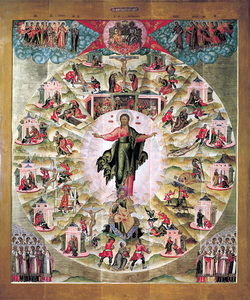 To take a side step for a moment, and tell you a little bit about me. I'm a minister of an online ministry, Fig Tree Christian. Every week I bring a message to a group of people online, then I remain available throughout the day to discuss it. Usually this happens through Reddit. This past Thursday I discussed a specific phrase that comes up in Acts 2:42-47, “they kept all things in common.” Our financially centered society has taken that to mean all our “stuff” is pooled together. Actually the phrase is much more radical. It's a Greco-Roman phrase meaning a profound friendship that encompasses a shared set of core values, and deep respect for one another's well being. This early church shared their physical “stuff” because the spiritual relationship was so strong. The relationship was worth more than the “stuff.” There was a subsequent conversations that blossomed from the Acts 2 meditation. A person wanted me to push the idea further. Wanted me to explore what it meant to have such a strong spiritual relationship with the group. He pushed me because in the meditation I had said real church shouldn't hurt. In all honesty, real relationship should not lead to ostracizing and broken pieces of the body of Christ. That type of pain shouldn't exist when all things are shared in common. This person correctly called out real relationship sometimes does hurt. It hurts, because love can often take the road of sacrifice. Real love gives up for ourselves for the sake of someone else. Sometimes, doing the loving thing just hurts. Tell me mother's don't understand that? So stitching it all together, God is like a shepherd. Mother's are like shepherds. Shepherding is a beautiful illustration for true self-sacrificing, relational love. Today, Mother's Day we can can celebrate how God and Mom are our shepherd, and we are difficult, but lovable sheep. Thank god for such needed and sacrificial love. http://upload.wikimedia.org/wikipedia/commons/8/8e/Imperial_State_Crown2.JPG http://upload.wikimedia.org/wikipedia/commons/1/10/William-Adolphe_Bouguereau_%281825-1905%29_-_Charity_%281878%29.jpg http://upload.wikimedia.org/wikipedia/commons/5/51/ApostleFedorZubov.jpg We are a non-profit. Before we renew our non-profit status, board nominations are open. They will remain open until May 20th. More information under Upcoming Events, and in our subreddit.
If you like what you are reading there are many ways to connect: And as always, contributions are greatly appreciated. Acts 2:42-47 NRSV They devoted themselves to the apostles’ teaching and fellowship, to the breaking of bread and the prayers. Awe came upon everyone, because many wonders and signs were being done by the apostles. All who believed were together and had all things in common; they would sell their possessions and goods and distribute the proceeds to all, as any had need. Day by day, as they spent much time together in the temple, they broke bread at home and ate their food with glad and generous hearts, praising God and having the goodwill of all the people. And day by day the Lord added to their number those who were being saved. This past week has been filled with little moments of encouragement. By themselves, tiny. Like if a bunch of people each gave you a few beans. Each gift, by itself, wouldn't be enough to do anything, but put it together, a meal can be made. (Like the story of Stone Soup.) For me, it all adds up to: Hang in there! Now "Hang in there" is not to literally dangle like a kitty from a rope. It's an English phrase meaning, keep trying. Don't give up. I have two children, and one is still a toddler. Sometimes my illustrations are pulled from the simplicity of day time kid shows. If you are like me, click the above picture and enjoy the link to Yo Gabba Gabba. If you don't, the picture gets the point across and you can simply continue reading. What if I were to tell you there's a phrase in our scripture today, in Acts, that we may take too literally? The phrase in question is, "all things in common." A misconception is the early Christians gave up ownership of everything and redistributed the goods. Yes, they were generous, selling their possessions and goods and distributing the proceeds to all, as any had need. However, their generosity did not come from being forced to give up their possessions first. In the early Christian, Greco-Roman world keeping things in common was a phrase to describe a profound friendship. It was a phrase to describe a shared set core-values and a deep respect for ones spiritual and physical well being. * In other words, these people understood and loved one another so much, their relationship was worth more than their possessions. This is church; this is true fellowship. It's about the people. So what is the point? If you are jaded or wounded by a church experience, don't give up. Hang in there. Real fellowship doesn't hurt. Living out church, really living it out, is really communal, were the people have a deep and profound friendship with one another. Maybe we just need to start here at Fig Tree. Hello friend. * NIB Volume X We are a non-profit. Before we renew our non-profit status, board nominations are open. More information under Upcoming Events, and in our subreddit.
If you like what you are reading there are many ways to connect: And as always, contributions are greatly appreciated. Luke 24:13-35 CEB On that same day, two disciples were traveling to a village called Emmaus, about seven miles from Jerusalem. They were talking to each other about everything that had happened. While they were discussing these things, Jesus himself arrived and joined them on their journey. They were prevented from recognizing him. He said to them, “What are you talking about as you walk along?” They stopped, their faces downcast. The one named Cleopas replied, “Are you the only visitor to Jerusalem who is unaware of the things that have taken place there over the last few days?” He said to them, “What things?” They said to him, “The things about Jesus of Nazareth. Because of his powerful deeds and words, he was recognized by God and all the people as a prophet. But our chief priests and our leaders handed him over to be sentenced to death, and they crucified him. We had hoped he was the one who would redeem Israel. All these things happened three days ago. But there’s more: Some women from our group have left us stunned. They went to the tomb early this morning and didn’t find his body. They came to us saying that they had even seen a vision of angels who told them he is alive. Some of those who were with us went to the tomb and found things just as the women said. They didn’t see him.” Then Jesus said to them, “You foolish people! Your dull minds keep you from believing all that the prophets talked about. Wasn’t it necessary for the Christ to suffer these things and then enter into his glory?” Then he interpreted for them the things written about himself in all the scriptures, starting with Moses and going through all the Prophets. When they came to Emmaus, he acted as if he was going on ahead. But they urged him, saying, “Stay with us. It’s nearly evening, and the day is almost over.” So he went in to stay with them. After he took his seat at the table with them, he took the bread, blessed and broke it, and gave it to them. Their eyes were opened and they recognized him, but he disappeared from their sight. They said to each other, “Weren’t our hearts on fire when he spoke to us along the road and when he explained the scriptures for us?” They got up right then and returned to Jerusalem. They found the eleven and their companions gathered together. They were saying to each other, “The Lord really has risen! He appeared to Simon!” Then the two disciples described what had happened along the road and how Jesus was made known to them as he broke the bread. When I moved back to Georgia I was excited about rekindling my friendship with someone I used to know, Shelly. We were friends in high school. We hung out during choir class. We went to prom together as a giant super group. She was real, and I loved it. As chance would have it, she begun going to the church I attended as a youth. With her new husband, I could see double dates, and the opportunity to just be openly geeky. Unfortunately, not long after I moved back, she passed away. I wept at her funeral. I was such a bad friend. Only I was to blame for our friendship falling through the cracks. When she died I wanted a miracle. I wanted it to be a dream. Like other friends I have prematurely lost to illness, I wanted to know why. Why did God take someone with so much potential? Jesus teaches us how to talk to someone in the midst of loss The disciples in our scripture had a lot on their minds.. In many ways they were dealing with an "end of life" crisis. Jesus had died. This is not an easy discussion to have only two weeks after Easter. We want to stay in the ressurection. We can easily Google images of a risen Christ but, let's remember the image that is most startling to us, Christ dead. It happened. It had to happen. After all, we can talk all day about how he was fully divine but he was also fully human. The last I checked humanity still suffers from a 100% mortality rate. It doesn’t matter how rich, smart, or lucky you are- we all die. The disciples, they wanted a miracle, and I am not talking about rising from the dead. If they were searching for a resurrection miracle the disciples never would have been trying to fight back when Jesus was arrested, Peter never would have been ashamed to admit he was a disciple, and Thomas (with the other disciples) would have always believed. The miracle the disciples wanted to see, was salvation that completely skipped the whole death issue. So in that mindset, Cleopas and the other disciple were walking from Jerusalem to Emmaus. They were feeling all the normal feelings associated with loss. They were obviously sad. (It is the only direct emotion attributed to them.) They were probably also angry. If they believed Jesus had come to redeem God’s chosen people the one group the disciples would have wanted to see stand up and help would have been the Sadducees and Pharisees. Instead their tone comes across apparently hostile towards the Jewish leaders as Cleopas explains it was them who instigated the crucifixion of Jesus. Also, because they didn’t get the miracle they wanted they couldn’t see a miracle actually occurred. So, if you read the scripture you will notice how easy it is to read Cleopas’ tone as sarcastic when talking about the women at the tomb: (Oh yeah, the disciples totally believed the women when they spoke of angels at the tomb. As Cleopas said to Jesus, “Some of those who were with us went to the tomb and found it just as the women had said; but they did not see them.”) Do you think some of the disciples maybe took the women aside and tried to justify what they saw? Perhaps they told them it wasn’t angels but the way the light reflected off the tomb? Perhaps they said they were sleepy or too emotional? I just wish to add, if I believed the story when someone told me Jesus was alive again, the last thing I would do would be head out of Jerusalem. This is what Cleopas and the other disciple were doing. All signs point to, they didn't believe. Jesus knew the disciples were thinking and talking about the un-resurrected Christ while walking along the road. Was there anything the two disciples could have told Jesus that wasn’t already understood? No. Jesus understood exactly what kind of suffering the disciples were facing. So, Jesus did not enter into the conversation with, “I understand,” or “stop moping because there is nothing to mope about.” Instead, he asks a question, “What are you talking about as you walk along?” When we pray in the midst of crisis God wants us to communicate! Open up, tell what you feel. Be honest about it. Cleopas was honest. He was sad, angry and skeptical. Jesus was not condemning after hearing any of those feelings. They needed to vent. They needed to express how they believed their hopes and wishes for a miracle had not come to fruition. It is only after they were willing to open up and share, Jesus could begin the healing. In that life continues. We can celebrate, thanks to the death and resurrection in Jesus Christ, that death is not the final answer for those we love and care about. We also have to realize, their death is not the final answer for us either. We must continue in this world. Sometimes it is difficult, especially if you are dealing with the loss of someone very dear and close to your heart. Life becomes very trying without that person in your life to fill the void left in their absence. If you find yourself in that place remember the disciples. They gave up everything to follow Jesus: family, friends, and jobs. They loved him and he was gone. God did not come to obliterate death, but to fix life. The problem the disciples were trying to overcome, and did not understand, was God did not come to obliterate death, but to fix life. Eternal life on earth is meaningless when it’s filled with so much pain, suffering, and evil. The disciples felt their prayers were left unanswered. That is an easy mindset to come to when we are searching for our answers and not God’s answers. I guess what it comes down to is within all the cosmic trials and tribulations death is not the final answer, but it is still on the test. We still have to face it and deal with it. There was no chariot of fire for Jesus to carry him away from his pain and suffering and there is no flaming chariot for us. Sometimes life means facing the facts. Unless our names are Elijah or Enoch, and we lived over 2,000 years ago, our time will come. There was a time, over a decade ago, one of my friends passed away. I can remember I was sitting in my car, in my driveway. For the longest time I just sat there in silence, wondering what to do. Part of me even questioned prayer. God knew every thought rolling through my head during that time of loss. What could I pray to God that wasn’t already known? In the end I decided it was better to try to verbalize something than remain quiet. Even if it didn’t change anything regarding God’s knowledge of the past events or my emotional and spiritual life, it felt good to release. Looking back, I wish I could have given myself the Emmaus scripture. God has plans, even after death It seems strange to talk about the end of life so close to the recent celebration of new life: Easter. But, in some ways, it is fitting. When I was pregnant with my first child, my Great-Grandmother was on her death bed. She had been talking about death for most of my life. Finally, two decades after she lost her husband it was her turn. I knew she was finally ready to go. We had so much warning, it was sort of a blessing, I was able to take a trip to Kansas City to say good bye. I was able to let her know her third great-great-grandson was going to born in April. It was a gift to be able to say goodbye like that. I know many don't get that opportunity. A few months later Aeden was born and my sister gave me a book, a memory book called, On the Day You were Born. It had places inside to put pictures. There is one page in that book that reminds me of my grandma even to this day. The page reads: “On the day you were born the waves washed the beaches clean for your footprints.” My grandma left this world as my son entered it. Eventually footprints must be washed clean for the next tiny feet that walk this world. The disciples had work to do and they had to say goodbye and get to the work. Jesus was still going to be there but not in the flesh anymore. We do not walk this path alone. It was time for the disciples to become apostles. Just like it was time for me to move from title great-granddaughter to mom. I love you Jesus, I love you Grandma, and I love and miss all the friends who have passed before me. I hope you are proud of me and the choices I have made as I continue to strive to be the best disciple, mother, and friend I possibly can be. If you like what you are reading there are many ways to connect:
And as always, contributions are greatly appreciated. |
Categories
All
Archives
October 2023
|


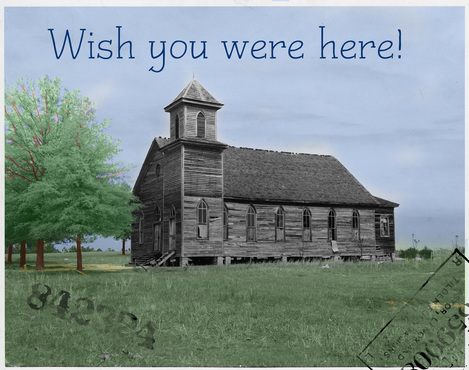


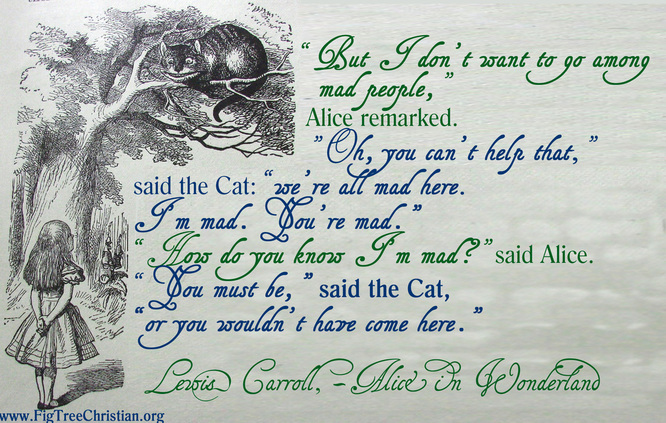
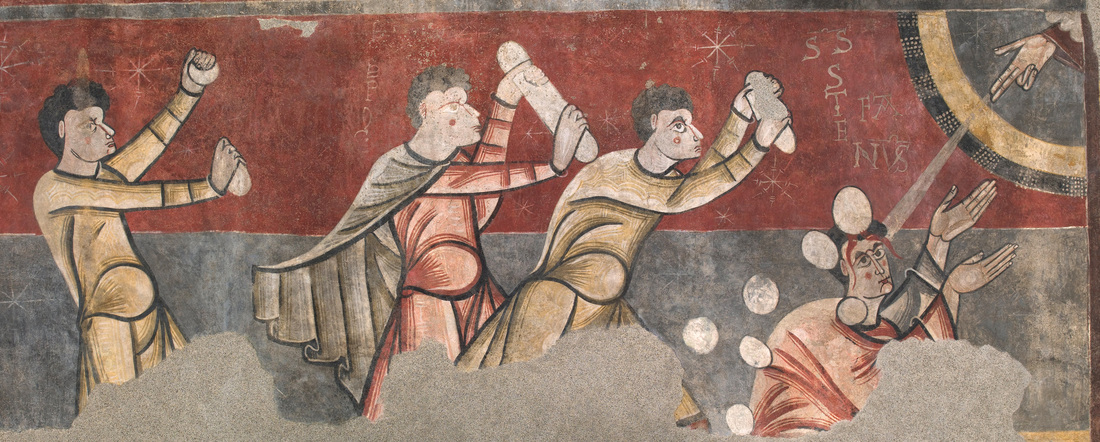


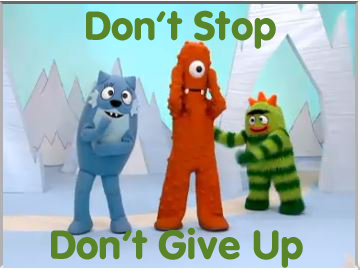
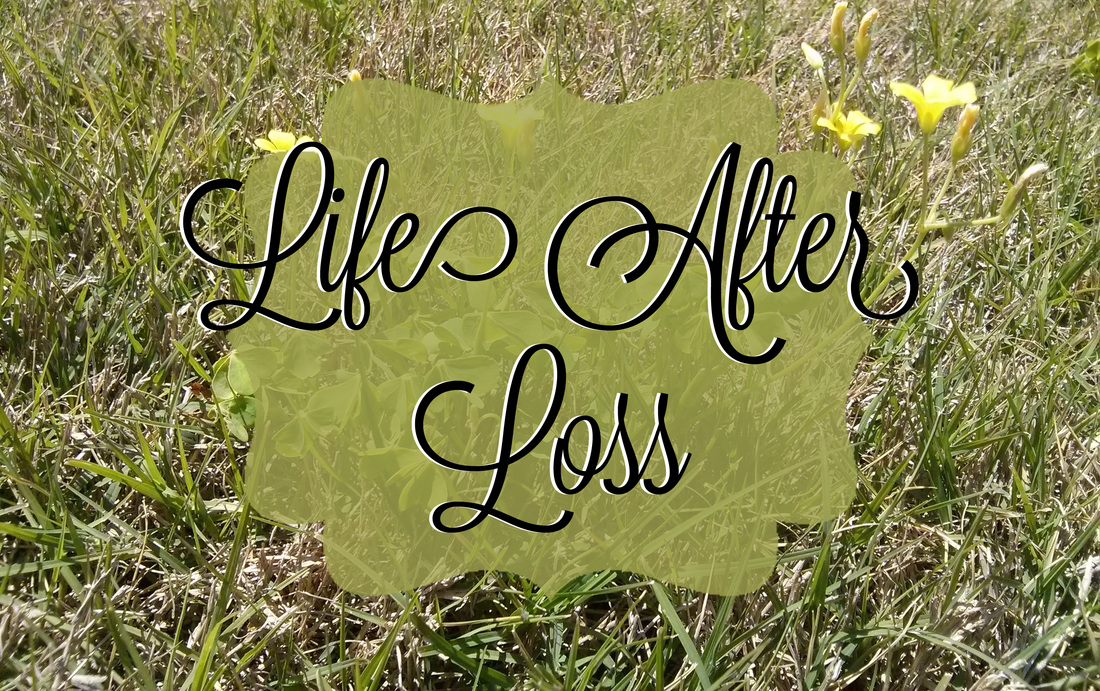

 RSS Feed
RSS Feed